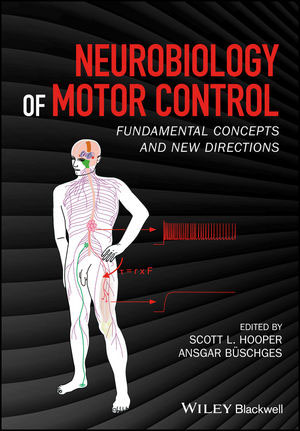Dr. Scott Hooper, Professor of Biological Sciences, co-edited a book on Neurobiology of Motor Control. Fundamental Concepts and New Directions for Wiley Blackwell Publishers.
The book provides A multi-disciplinary look at the current state of knowledge regarding motor control and movement—from molecular biology to robotics.
 Abstract: The last two decades have seen a dramatic increase in the number of sophisticated tools and methodologies for exploring motor control and movement. Multi-unit recordings, molecular neurogenetics, computer simulation, and new scientific approaches for studying how muscles and body anatomy transform motor neuron activity into movement have helped revolutionize the field. Neurobiology of Motor Control brings together contributions from an interdisciplinary group of experts to provide a review of the current state of knowledge about the initiation and execution of movement, as well as the latest methods and tools for investigating them.
Abstract: The last two decades have seen a dramatic increase in the number of sophisticated tools and methodologies for exploring motor control and movement. Multi-unit recordings, molecular neurogenetics, computer simulation, and new scientific approaches for studying how muscles and body anatomy transform motor neuron activity into movement have helped revolutionize the field. Neurobiology of Motor Control brings together contributions from an interdisciplinary group of experts to provide a review of the current state of knowledge about the initiation and execution of movement, as well as the latest methods and tools for investigating them.
The book ranges from the findings of basic scientists studying model organisms such as mollusks and Drosophila, to biomedical researchers investigating vertebrate motor production to neuroengineers working to develop robotic and smart prostheses technologies. Following foundational chapters on current molecular biological techniques, neuronal ensemble recording, and computer simulation, it explores a broad range of related topics, including the evolution of motor systems, directed targeted movements, plasticity and learning, and robotics.



















Comments